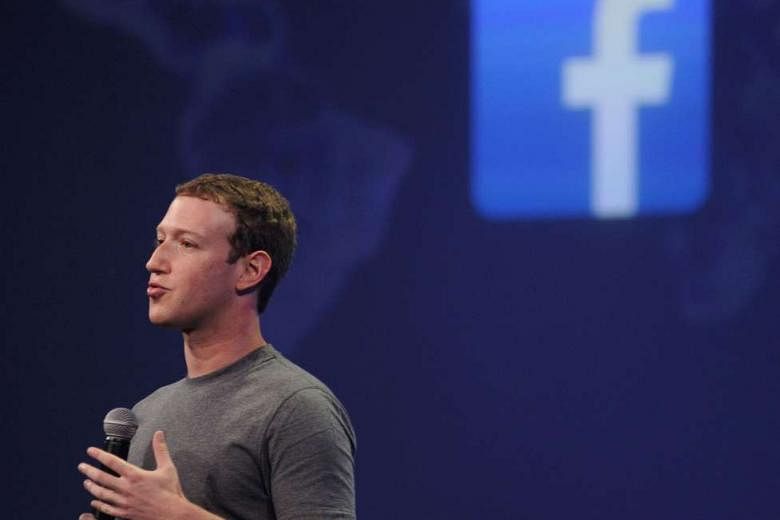In the Internet age, nothing travels faster than a cliche whose time has come. No speech is now complete without a reference to our "post-truth" times - as if, until only yesterday, the pure water of truth flowed unceasingly from the lips of politicians and newscasters. Not to mention Joseph Goebbels, Joseph Stalin and the totalitarian big lies dissected by Alexander Solzhenitsyn and George Orwell.
The new danger is better described by the more modest adjective "post-fact". Indeed, "postfaktisch" has just been declared Germany's word of the year. The essence of the post-fact threat to democracy is that entirely false claims (the Pope supports Mr Donald Trump for president, Mr Barack Obama was not born in the US), wrapped up in emotionally appealing narratives and constantly magnified in online echo chambers, seem to have acquired the power to sway a significant part of the electorate.
Warm narrative prevails over cold fact, feeling over reason. Even when Mr Obama had actually published his birth certificate, Mr Trump declared "a lot of people feel it wasn't a proper certificate" (my italics). The comedian Stephen Colbert's satirical concept of "truthiness" has been trumped by Mr Trump.
There is, however, no reason to despair. Orwell and Solzhenitsyn did not surrender in the face of Goebbels and Stalin, so it would be pathetic for us to give up now. There are numerous ways in which the post-fact threat can be countered to make 2017 the year of anti-post-fact.
Fact-checking already plays a prominent role in political news reporting - and in everyday online practice. I recently retweeted a pair of photographs that allegedly showed the House of Commons completely packed for a debate about MPs' pay and almost empty for one about the humanitarian horror of Aleppo. Within minutes, people had tweeted at me to say that this was a notorious item of fake news, and I posted a correction on my Twitter feed. Internet literacy, encouraging such rapid and effective counter-speech, should become a part of every school curriculum. And universities can do more to give rigorous evidence-based analysis a wider circulation.
There are philanthropic foundations that fund serious investigative journalism, and since the business model of most newspapers is vanishing, we will need more of that. A number of established journalistic brands have maintained their credibility online, while new curation sites have rapidly acquired it.

Countries with public service broadcasters like the BBC need to hang on to them for dear life. Tech companies can and should track down and filter out what is clearly fake news delivered en masse by bots directed from Mr Vladimir Putin's Russia or by spamming sites - also known as "meme farms" - that do it simply to make money from online advertising.
Thanks to the spectacular knowledge-enhancing affordances of the Internet, it is actually easier than it has ever been for alert citizens to establish the facts on most issues. The real challenge for the craft and business of journalism is to take those facts to people who have fallen prey to emotionally appealing populist narratives - and may not even be interested in learning the boring truth. An Orwell Prize should go to anyone who makes the facts accessible and interesting in tabloid form, or in espresso-size offerings on Facebook and YouTube.
It is as important to recognise the public responsibilities of what I call the "private superpowers". Google, Facebook and Twitter have been dubbed "Pops" (privately owned public spaces) but they do more than merely provide the paving stones of our global public square. The algorithm of Facebook's news feed determines the selection of news viewed by hundreds of millions of people every day. That is extraordinary power. Research by Professor Filippo Menczer of Indiana University suggests that misinformation is as likely to go viral as accurate information, so if the main criterion for the algorithm is "what your friends have liked", this is not helpful in combating fake news.
Until recently, the Internet companies have been reluctant to face up to this responsibility. They have preferred to present themselves as neutral intermediaries, dedicated only to offering the best "experience" to their "community". Fortunately, this is beginning to change. This month, Mr Mark Zuckerberg wrote a remarkable Facebook post in which he said: "We're a new kind of platform for public discourse - and that means we have a new kind of responsibility to... build a space where people can be informed."
So users can now report what they think is fake news, and if a third-party, fact-checking organisation agrees, the item will be flagged as problematic. Facebook will also try to prevent fake news being exploited to harvest advertising income. Mr Zuckerberg added some slightly opaque commitments to tweak the sacred algorithm in order to squeeze out fake news.
But how can we check the workings of the algorithm if only Facebook has access to the data? Facebook's great power, like all other kinds of power, needs to be scrutinised and held to account. Yet we should be careful what we wish for. Mr Zuckerberg is right that Facebook should not be asked to become an "arbiter of truth". It can, however, be an indispensable partner in combating falsehood.
Sobered by decades of totalitarian lies, political spin and now the post-fact challenge, we may no longer share the magnificent self-confidence of John Milton, the great English poet who wrote of Truth, with a capital T: "Let her and Falsehood grapple; who ever knew Truth put to the worse in a fair and open encounter."
But there is still much that we can do to make the grappling fair and open.
FINANCIAL TIMES
- The writer is author of Free Speech: Ten Principles For A Connected World.

